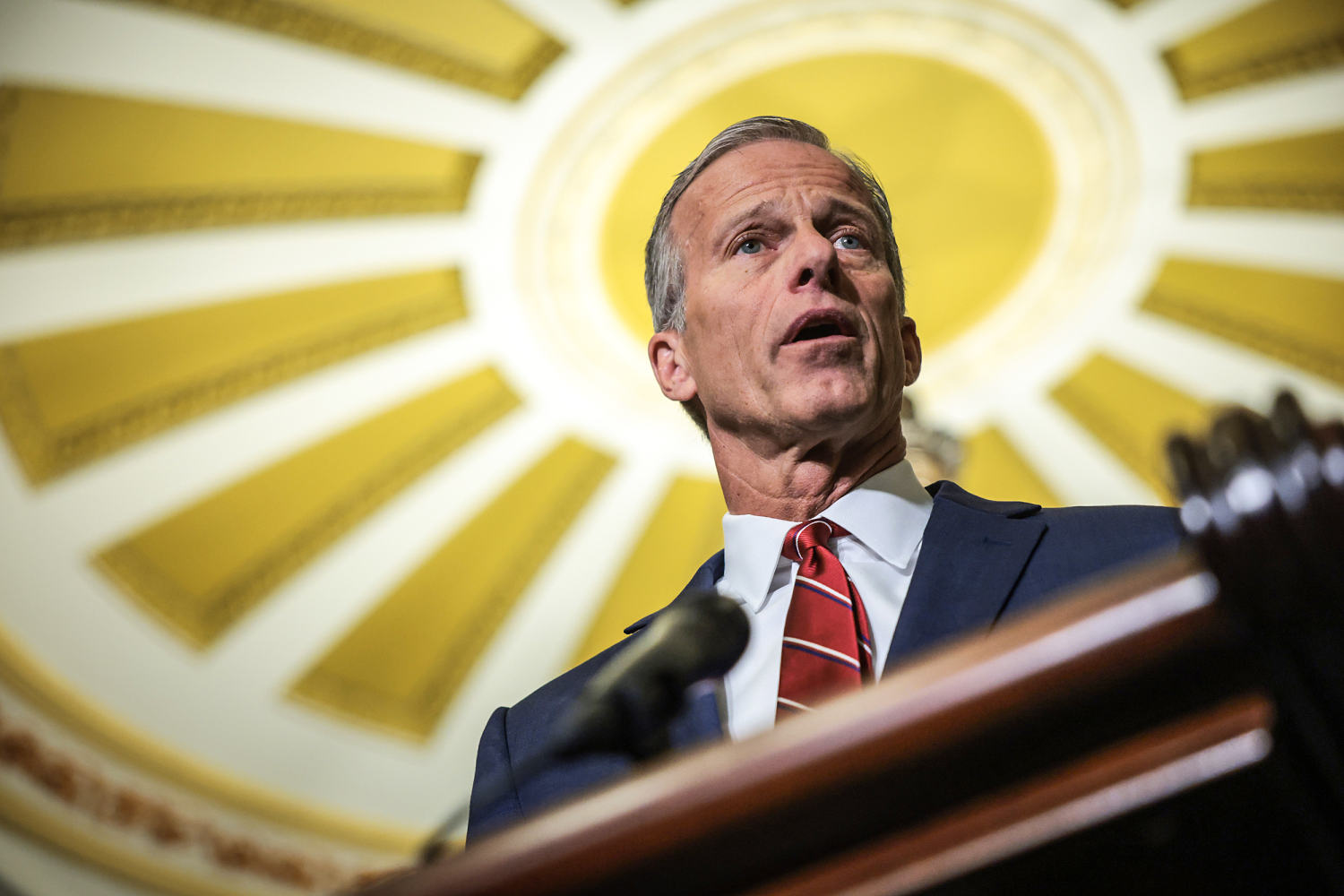Senate Republicans are facing crunch time on a long-overdue budget resolution, which has divided their conference over the possibility of cutting Medicaid and adding language to increase the debt ceiling by as much as $5 trillion.
Whether they move on the bill this week could depend largely on a key ruling from Senate parliamentarian Elizabeth MacDonough.
Senate Majority Leader John Thune (R-S.D.) has told colleagues that he wanted to get the budget to the floor this week, but that timeline is already slipping as GOP senators have yet to coalesce around the proposal, and it has yet to get the green light from the powerful parliamentarian.
Thune told reporters Monday that he’s not yet sure whether the budget will be ready to go this week, noting that the discussions with the parliamentarian are “ongoing” and he wants to make sure nearly his entire conference is “comfortable” with the plan.
“We want to get to it as quickly as we can, and I’m hoping that enables us to move on it this week,” Thune said.
But he cautioned that moving on the budget requires “having everything ready to go” and cited “the parliamentarian conversations” and “making sure we got everybody in a comfortable place with it.”
“It’s a process,” he said.
Some Senate Republicans, including Sen. Josh Hawley (R-Mo.), have made it clear they would not support big cuts to Medicaid that might threaten to reduce the program's benefits.
Meanwhile, Sens. Bill Cassidy (R-La.) and Todd Young (R-Ind.) have raised questions about using a special budgetary scoring model to claim that extending President Trump's tax cuts won’t add to the deficit.
And Sen. Rand Paul (R-Ky.) has stated flatly that he won’t support adding language to raise the debt limit by up to $5 trillion unless that total is offset by huge cuts to federal spending.
The Senate and House must first pass a joint budget resolution to “unlock” the special budget reconciliation process, which will allow them to pass Trump’s agenda through the Senate with a simple majority.
If the Republicans don’t use the budget reconciliation process, they would need to muster 60 votes to overcome a Democratic filibuster. They currently control a 53-to-47-seat majority.
Senate Republicans are feeling pressure to move quickly as rank-and-file members, especially in the House, are growing increasingly impatient over the pace of Trump’s agenda.
Speaker Mike Johnson (R-La.) has set the ambitious goal of getting “one big, beautiful bill” to Trump’s desk by Memorial Day at the latest.
“We just know what we need to do and we need to get it done sooner rather than later. The last time we did a budget resolution like this it was done before the president was sworn in, so we’re a little bit behind that schedule,” said Sen. John Cornyn (R-Texas).
The Republican-controlled Senate adopted its budget resolution to repeal the Affordable Care Act — Trump’s first priority during his first term — on Jan. 12, 2017, days before Trump took the oath of office.
The process for laying the groundwork for a bill to secure the border, expand domestic oil and gas drilling, increase defense spending and provide more than $4 trillion in tax relief has taken considerably more time this year.
Thune privately told colleagues before the March recess that he thought Johnson’s initial timeline of getting a bill to Trump’s desk by Easter was highly unrealistic, according to Senate sources.
The biggest obstacle may be MacDonough, who is expected to rule on the question of whether Republicans can use a “current policy” baseline that would allow them to pass a bill to make President Trump’s 2017 tax cuts permanent.
If defined as an extension of current policy, renewing the ...














